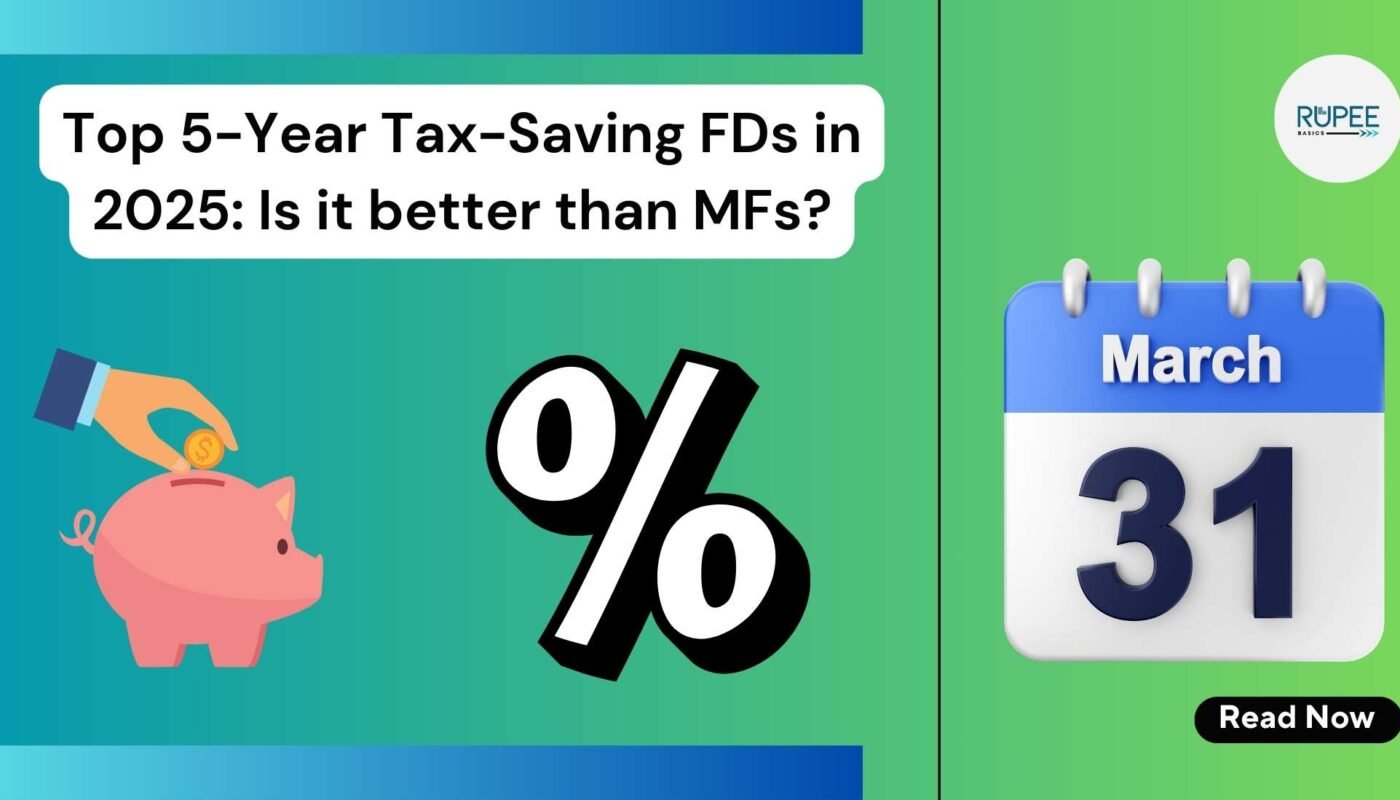Investing in tax-saving fixed deposits (FDs) is a prudent way to save on taxes while earning assured returns. Under Section 80C of the Income Tax Act, 1961, investments up to ₹1.5 lakh in these FDs are eligible for tax deductions. These FDs come with a lock-in period of five years, offering both safety and tax benefits.
Who Can Invest in Fixed Deposits?
Fixed deposits are suitable for a wide range of investors, including:
- Conservative Investors: Individuals who prioritize capital preservation over high returns often prefer FDs due to their low-risk nature.
- Retirees: Those seeking a steady income stream without exposing their savings to market volatility find FDs appealing.
- First-Time Investors: New investors looking for a safe avenue to grow their funds may start with FDs before exploring riskier options.
- Individuals with Specific Financial Goals: People aiming to save for short to medium-term objectives, such as purchasing a vehicle or funding a vacation, may use FDs to ensure their funds grow securely over a fixed period.
Risk Profile of Fixed Deposits
Fixed deposits are generally considered low-risk investments, characterized by:
- Capital Protection: The principal amount invested is secure, with returns unaffected by market fluctuations.
- Fixed Returns: Investors receive predetermined interest rates, ensuring predictable earnings over the deposit tenure.
- Liquidity Constraints: FDs have a fixed tenure, and premature withdrawals may incur penalties, affecting liquidity.
- Inflation Risk: While FDs offer fixed returns, there’s a possibility that these returns may not keep pace with inflation, potentially reducing purchasing power over time.
- Interest Rate Risk: In a declining interest rate environment, new FDs may offer lower rates, affecting reinvestment opportunities.
Top Banks Offering High Tax-Saving FD Rates in 2025
As of March 5, 2025, several banks are offering attractive interest rates on 5-year tax-saving FDs:
| Bank Name | Interest Rate for General Citizens | Interest Rate for Senior Citizens |
|---|---|---|
| Suryoday Small Finance Bank | 8.60% | 9.10% |
| Jana Small Finance Bank | 8.20% | 8.20% |
| SBM Bank India | 7.75% | 8.25% |
| Utkarsh Small Finance Bank | 7.50% | 8.10% |
| DCB Bank | 7.40% | 7.90% |
| AU Small Finance Bank | 7.25% | 7.75% |
| IndusInd Bank | 7.25% | 7.75% |
| Ujjivan Small Finance Bank | 7.20% | 7.70% |
| Capital Small Finance Bank | 7.10% | 7.60% |
| Federal Bank | 7.10% | 7.60% |
List of Other Public Sector Banks:
| Bank Name | Interest Rate for General Citizens | Interest Rate for Senior Citizens |
|---|---|---|
| Central Bank of India | 6.50% | 7.00% |
| Union Bank of India | 6.50% | 7.00% |
| Bank of Baroda | 6.50% | 7.50% |
| Indian Overseas Bank | 6.50% | 7.00% |
| Punjab & Sind Bank | 6.00% | 6.50% |
Note: These rates are indicative and subject to change. It’s advisable to verify the latest rates directly with the respective banks before investing.
Features of Tax-Saving Fixed Deposits
- Tenure: Fixed lock-in period of 5 years.
- Tax Deduction: Investments up to ₹1.5 lakh qualify for deductions under Section 80C.
- Premature Withdrawal: Not permitted before the completion of the 5-year tenure.
- Interest Payout: Options for monthly, quarterly, or cumulative interest payouts.
- Risk: Considered a low-risk investment with assured returns.
Tax-Saving FDs vs. Mutual Funds
When deciding between tax-saving FDs and Equity-Linked Savings Schemes (ELSS) mutual funds, consider the following:
- Returns:
- Tax-Saving FDs: Offer fixed and assured returns, typically ranging between 6% to 8%.
- ELSS Mutual Funds: Returns are market-linked and can be higher, but they come with higher risk.
- Lock-in Period:
- Tax-Saving FDs: 5 years.
- ELSS Mutual Funds: 3 years.
- Risk Factor:
- Tax-Saving FDs: Low risk with guaranteed returns.
- ELSS Mutual Funds: Higher risk due to market fluctuations.
- Taxation on Returns:
- Tax-Saving FDs: Interest earned is taxable as per the investor’s income slab.
- ELSS Mutual Funds: Gains above ₹1 lakh are taxed at 10% as long-term capital gains.
Conclusion
Tax-saving fixed deposits are a secure investment option for individuals seeking tax benefits under Section 80C, combined with assured returns. While they offer safety and predictability, it’s essential to compare current interest rates across banks to maximize returns. For those willing to take on more risk for potentially higher returns, ELSS mutual funds might be a suitable alternative. Ultimately, the choice between the two should align with your financial goals, risk tolerance, and investment horizon.
FAQs
- What is the minimum amount required to open a tax-saving FD?
- Most banks require a minimum deposit of ₹100 for tax-saving FDs.
- Can I withdraw my tax-saving FD before the 5-year lock-in period?
- No, premature withdrawal is not allowed for tax-saving FDs.
- How much tax deduction can I claim with a tax-saving FD?
- You can claim a deduction of up to ₹1.5 lakh per annum under Section 80C.
- Is the interest earned on tax-saving FDs taxable?
- Yes, the interest earned is taxable as per your income tax slab.
- Who should invest in tax-saving FDs?
- Individuals seeking a safe investment option with tax benefits under Section 80C should consider tax-saving FDs.
- Are there any risks associated with tax-saving FDs?
- Generally, there are no risks involved as they offer assured returns.
- What happens when a tax-saving FD matures?
- Upon maturity, you can withdraw the principal amount along with the accumulated interest.
By carefully evaluating your financial objectives and risk appetite, you can choose the investment avenue that best suits your needs, ensuring both growth and security for your hard-earned money.
Additional Information
- Public Provident Fund (PPF): Offers a 7.1% interest rate with a 15-year tenure and tax benefits under Section 80C. You can read More Here.
- National Savings Certificate (NSC): Provides a 6.8% interest rate with a 5-year tenure and tax benefits under Section 80C.
- ELSS Mutual Funds: Equity-linked savings schemes with a 3-year lock-in period and potential for higher returns, but with higher risk. You can read More Here.
“Abundance is not something we acquire; it is something we tune into.” – Wayne Dyer




